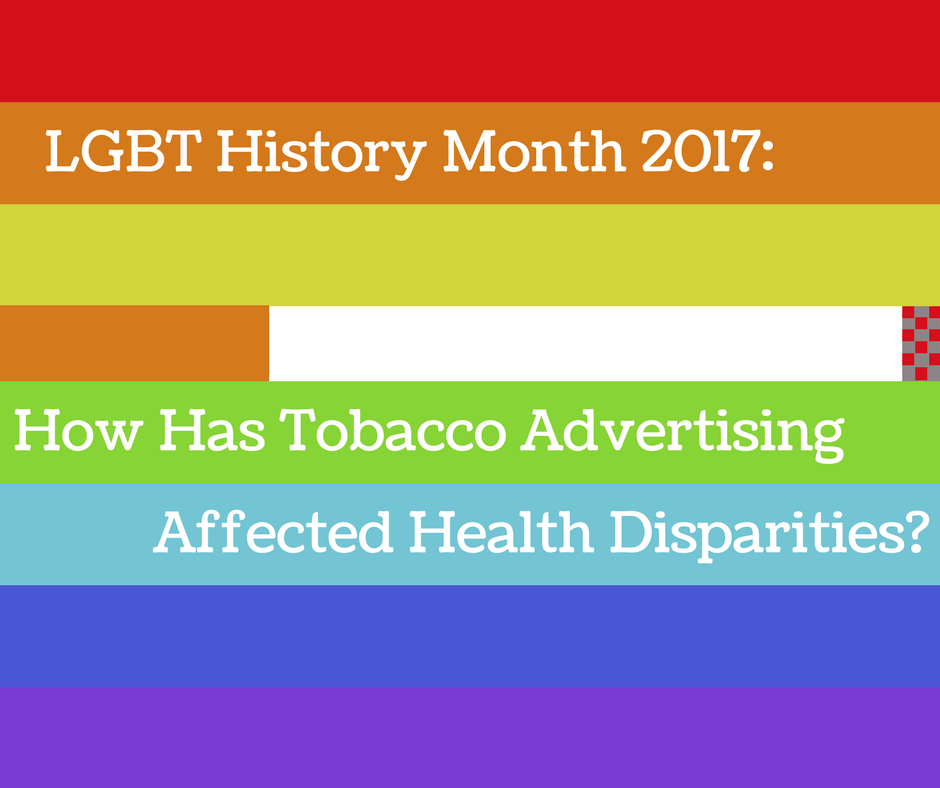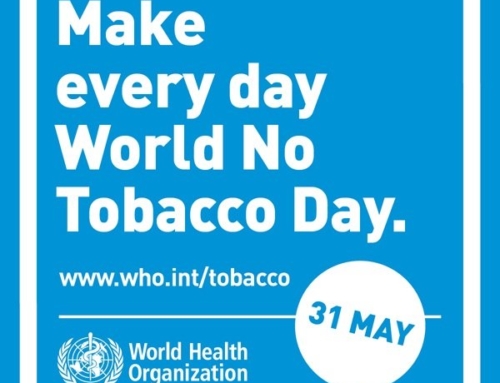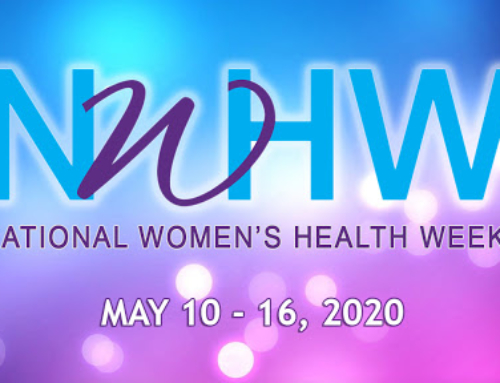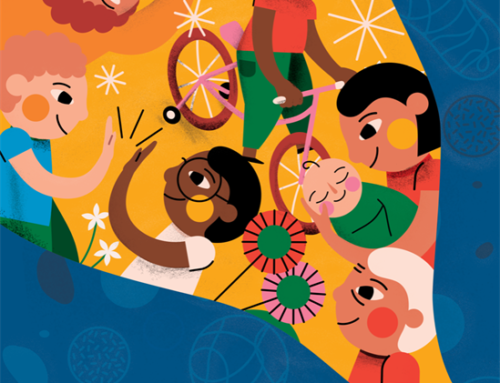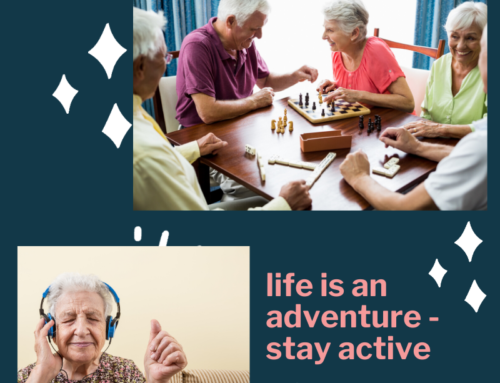Trends in the general public are reflecting tobacco companies’ biggest fears: tobacco use is on the decline. However, in the case of one community, smoking is still a common high-risk behavior that youth and young adults engage in.
So, who is truly pushing the continued use of tobacco within this community? Through deception and false advertising, tobacco companies are luring members of the LGBTQ community by using buzz words such as “freedom” and “choice” to give the LGBTQ community the impression that although they may be lacking control in their life due to stigma, mental health and stress, cigarettes are the one aspect of their life in which they have complete control over.
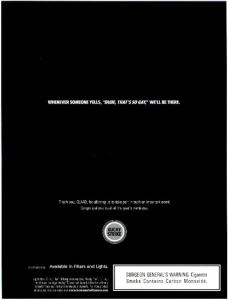
Lucky Strike advertisement reading “Whenever someone yells, ‘Dude, that’s so gay,’ we’ll be there.” From lgbttobacco.org.
According to the Center for Disease Control and Prevention (CDC) , LGBTQ individuals are 33% more likely to smoke cigarettes than non-LGBTQ individuals, increasing their risk of developing heart disease, stroke or lung cancer. The CDC has also found that 1 in 4 LGBTQ adults currently smokes, compared with 1 in 6 straight adults.With tobacco being the number one preventable cause of death in the United States, why are tobacco companies actively targeting and taking advantage of an already marginalized community?
One explanation is that LGBTQ individuals are given the impression that tobacco companies stand in solidarity with them. Companies such as Reynolds and Lucky Strike have reached out to LGBTQ customers by featuring advertisements with taglines like “When someone yells, ‘Dude, that’s so gay,’ we’ll be there.” Lucky Strike featured a lesbian couple in their ad alongside the phrase “I choose”. Cigarettes are also seen as a symbol of rebellion and deviation from the norm. Cigarette companies convey
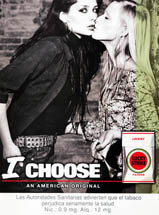
Lucky Strike advertisement featuring two women nearly kissing, with the caption “I Choose”. From lgbttobacco.org.
an empowering“freedom to smoke” message, rather than making LGBTQ individuals feel marginalized. It shows them that smoking is a way to embrace their identity and rebel against the society that has outcasted them so many times before.
What the LGBTQ community should know is that although these companies may pretend to be an ally, they truly only view them as convenient targets. Marlboro is one company that has been reported to provide support politicians who endorse the opposition of LGBTQ rights. An early tobacco company designed a plan labeled “project scum” to specifically target the gay and homeless population in San Francisco. Tobacco companies often advertise at Pride events and get the youth addicted through manipulation and a lack of transparency. The truth is that tobacco companies are aggressively advertising and purposely profiling LGBTQ individuals in the hopes to get them to become lifelong consumers of their harmful product.
However, the LGBTQ community and allies are starting to fight back. Organizations such as Truth Initiative, America’s largest nonprofit dedicated to the rejection of tobacco use by all youth, have made it very clear that they aspire to address the predatory profiling of tobacco companies on LGBTQ individuals and hope to raise awareness of the health disparities surrounding tobacco use in marginalized groups.
Suwannee River AHEC is also joining that fight against tobacco companies targeting LGBTQ individuals. Through free tobacco cessation groups, Tobacco Free Florida’s AHEC Cessation Program provides the tools to guide community members to quit tobacco for good and inform community members about the facts regarding the dangers of tobacco use. SRAHEC also offers Systems Change trainings for healthcare providers to help patients quit. We even have an online program to train healthcare providers on LGBTQ healthcare experiences. All of SRAHEC’s programming is welcoming and inclusive to every individual.
October is LGBT History Month, and we should work to reverse the effects the tobacco industry has had on the LGBTQ community for a healthier future. Only together can we reduce the tobacco disparity prevalent within the LGBTQ population and provide individuals the information to keep from becoming a target for these companies’ false claims of solidarity.
Thank you to Fizza Imran for contributing this blog post. Fizza Imran, 21, culturally identifies as Pakistani American. She is currently pursuing a career in Public Health at the University of Florida as a Combined Degree Masters of Public Health student with a concentration in Health Management and Policy. Her interests include reducing health disparities in society, maternal and child health, and risk assessment and management of infectious and chronic diseases. As an intern at SRAHEC, Fizza has had the opportunity to shadow multiple tobacco cessation groups and work on client referral reports.
References:
- Kulke, C. (2025 July, 16). Why are LGBTQ Americans 33 Percent More Likely to Smoke Than Straight People? Retrieved October 20, 2017 from http://www.slate.com/blogs/outward/2015/07/16/gays_and_smoking_how_tobacco_companies_target_queers.html
- Pueschell A., & Florida, U. O. (2017, June 15) Viewpoint: Big Tobacco is targeting LGBTQ communities, but we’re fighting back. Retrieved October 20, 2017 from http://college.usatoday.com/2017/06/15/viewpoint-big-tobacco-is-targeting-lgbtq-communities-but-were-fighting-back/


